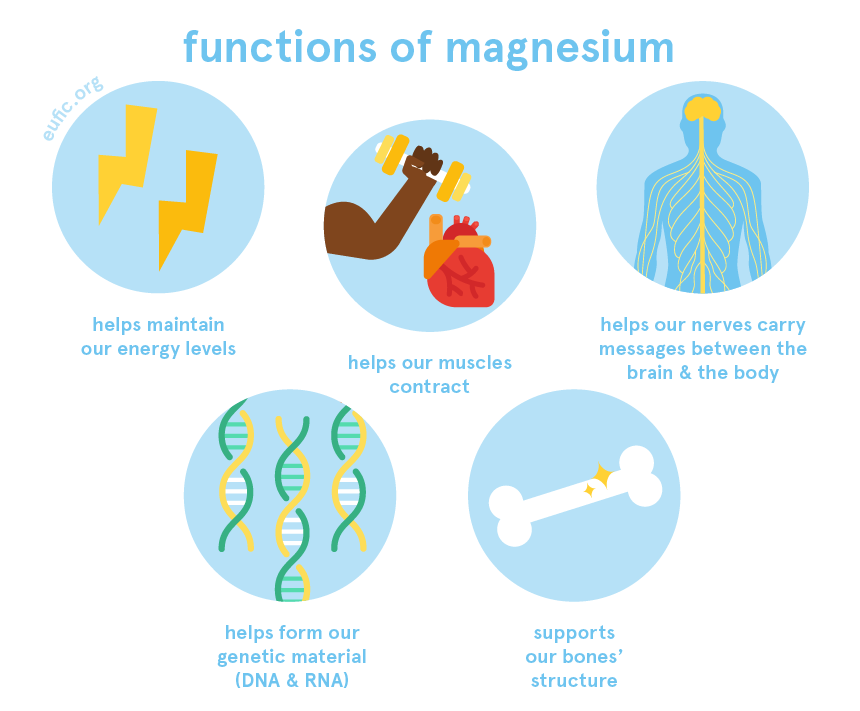Have you ever experienced muscle cramps, difficulty sleeping, or high levels of stress and anxiety? If so, you may be lacking a vital mineral in your body: magnesium. Often overlooked, magnesium plays a crucial role in over 300 biochemical reactions within our bodies. From maintaining strong bones and teeth to supporting cardiovascular health and reducing inflammation, the benefits of taking magnesium are wide-ranging. In this article, we will delve into the numerous advantages that this essential mineral provides for our overall well-being, giving you all the reasons why you should consider incorporating it into your daily routine.
Roles Of Magnesium In The Body

Magnesium, an essential mineral in the body, plays several crucial roles in maintaining overall health and well-being.
- Firstly, magnesium is involved in over 300 biochemical reactions within the body, including energy production, muscle function, and protein synthesis. This mineral works as a cofactor for numerous enzymes that are responsible for various metabolic processes.
- Secondly, magnesium is important for maintaining a healthy cardiovascular system. It helps regulate blood pressure by relaxing and dilating blood vessels, which promotes better circulation throughout the body. Additionally, magnesium aids in preventing abnormal heart rhythms and reducing the risk of heart disease.
- Furthermore, magnesium plays a vital role in bone health by contributing to bone density and strength. Alongside calcium and vitamin D, magnesium helps promote proper bone formation and development. It activates vitamin D to enable calcium absorption into the bones while also stimulating calcitonin production—a hormone that helps regulate calcium levels in the blood.
In summary, magnesium serves as an essential player in our bodily functions by supporting energy production, maintaining cardiovascular health, and contributing to strong bones. Ensuring sufficient intake of this mineral can have wide-ranging benefits on overall wellness—both physically and mentally—an aspect we will explore further later on.
Promotes Healthy Bones And Teeth

Magnesium does more than just help regulate sleep and reduce stress. It’s also a valuable mineral when it comes to promoting healthy bones and teeth.
One of the most important roles magnesium plays in this regard is aiding in the absorption of calcium. Without adequate amounts of magnesium, our bodies cannot properly absorb and utilize calcium, making it difficult for our bones and teeth to stay strong.
But what exactly does magnesium do for bone health? Well, research suggests that magnesium helps to build bone density by stimulating the activity of osteoblasts, which are the cells responsible for creating new bone tissue. Furthermore, studies have shown that a deficiency in magnesium can lead to lower levels of vitamin D – another essential nutrient for maintaining strong bones. By ensuring we have enough magnesium in our diets or through supplementation, we can give our bodies the necessary tools to build and maintain healthy bones and teeth.
The best part is that getting enough magnesium doesn’t require any drastic changes to your routine or diet. Many foods are naturally rich sources of this crucial mineral including almonds, spinach, avocados, bananas, and dark chocolate. Incorporating these foods into your meals can be a simple yet effective way to boost your daily intake of magnesium and support not only your overall health but also the strength of your bones and teeth. So why not give yourself an extra smile – quite literally – by adding some magnanimous magnesium into your diet today?
Supports Heart Health And Reduces Blood Pressure

One of the lesser-known benefits of taking magnesium is its positive impact on heart health. Magnesium plays a crucial role in maintaining a healthy heart rhythm and preventing irregularities or arrhythmias. Research has shown that individuals with higher levels of magnesium in their bodies are less likely to develop cardiovascular diseases, such as heart attacks and strokes. This essential mineral also helps to improve the overall function of blood vessels, ensuring smooth blood flow throughout the body.
In addition to supporting heart health, magnesium has been found to effectively reduce high blood pressure or hypertension. Hypertension is a significant risk factor for various cardiovascular conditions and can increase the chances of experiencing negative cardiac events. Studies have shown that increasing magnesium intake can significantly lower blood pressure levels, even in individuals with mild hypertension. This natural approach to managing blood pressure not only reduces reliance on medication but also promotes overall well-being by improving cardiovascular health.
Aids In Muscle Function And Relaxation
When it comes to muscle function, magnesium is an unsung hero. This essential mineral plays a crucial role in the contraction and relaxation of muscles throughout our body. Without enough magnesium, our muscles can become stiff, cramp, or experience spasms. Whether you’re an athlete looking to enhance performance or someone seeking everyday relief from muscle tension, ensuring adequate magnesium intake should be on your priority list.
- Magnesium works by regulating calcium levels within the muscle cells. It helps calcium enter into the cells when they need to contract and allows it to exit when they need to relax. This balance between calcium and magnesium is fundamental for smooth muscle function and proper response to nerve signals. So if you’re constantly dealing with tight muscles or find yourself struggling with post-workout soreness that lingers for days, consider incorporating more magnesium-rich foods into your diet or even discussing supplementation options with your healthcare provider.
- Additionally, many people find that taking magnesium before bed enhances relaxation and promotes deeper sleep. As we wind down at night, our bodies naturally produce melatonin – a hormone that regulates sleep-wake cycles. Surprisingly enough, research has shown that magnesium actually assists in the production of melatonin! By taking a sufficient amount of this mineral before hitting the sack, you may enjoy not only improved sleep quality but also wake up feeling more refreshed and revitalized each morning.
Improves Mood And Helps With Anxiety
One surprising benefit of taking magnesium that many people may not be aware of is its ability to improve mood and help with anxiety. Magnesium is known to play a crucial role in the production and regulation of neurotransmitters, such as serotonin, which are directly linked to our emotions and mood. Research has shown that individuals with lower levels of magnesium often experience symptoms such as irritability, depression, or even anxiety disorders.
Furthermore, magnesium has been found to have a calming effect on the nervous system by regulating cortisol levels – the hormone responsible for stress. In today’s fast-paced and stressful world, it’s no wonder that many people struggle with feelings of anxiety. Thankfully, adding magnesium into your daily routine can be a natural and effective way to alleviate these symptoms.
In addition to its direct impact on neurotransmitters and cortisol levels, magnesium also plays an important role in promoting quality sleep – another key factor in managing mood disorders like anxiety. By ensuring optimal magnesium intake, individuals can create a more balanced internal environment that supports healthy sleep patterns and overall emotional well-being. Whether through supplements or dietary changes, incorporating more magnesium into your daily life could be a simple yet powerful step towards improving your mood and reducing anxiety naturally.
Conclusion:
In conclusion, it is undeniable that incorporating magnesium into your diet can have a significant impact on your overall health and well-being. As we have discussed throughout this article, magnesium plays a crucial role in numerous bodily functions, including energy production, muscle function, and the regulation of blood pressure. By ensuring an adequate intake of magnesium through food sources such as leafy greens, nuts, and whole grains or through supplementation if necessary, you can support these essential functions and maintain optimal health.
Moreover, the benefits of incorporating magnesium into your diet extend far beyond physical health. Research has shown that magnesium also plays a vital role in mental well-being and cognitive function. Adequate levels of magnesium have been linked to improved mood and reduced symptoms of depression and anxiety. Additionally, studies have found that higher magnesium intake is associated with better memory performance and enhanced learning abilities. Therefore, by prioritizing magnesium consumption as part of your daily diet routine or supplement regimen if needed, you not only nourish your body but also support your mental clarity and emotional balance.
To fully reap the rewards of incorporating magnesium into your diet, it’s important to remember that balance is key. While too little magnesium can lead to deficiencies with various negative effects on the body’s systems, excessive intake may result in unwanted side effects like digestive issues or interference with certain medications’ absorption. Therefore, it is always advisable to consult with a healthcare professional before making any significant dietary changes or starting a new supplement regimen.
Also Read: How To Paint A Room With A view




